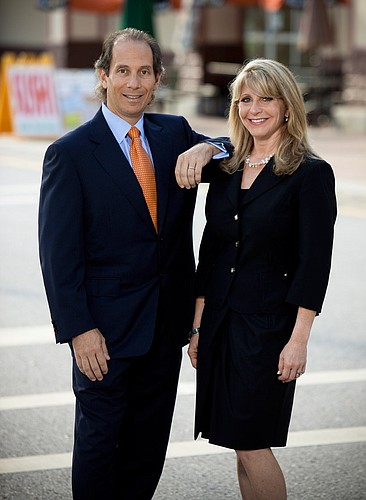- April 15, 2024
-
-
Loading

Loading

Tampa commercial real estate executive Mitchell Rice's long-planned Nordic cruise with his wife was jolted by a crisis message delivered via his Blackberry last month.
The note, which beamed through as the Rices were 100 miles north of the Arctic Circle, detailed a potential calamity that could have sunk RMC Property Group, the couple's 32-employee firm.
And it centered around one of any business owner's worst worries: A newspaper story that damages a company's reputation and image — in this case, incorrectly so.
But the Rices, who have run RMC jointly for 20 years, chose a rare strategy to solve their predicament: They attacked.
“I know there are a lot of reasons not to fight the press,” says Rice. “But our company enjoys a fantastic reputation because we worked hard for it.”
Indeed, a company will often stand down after a newspaper prints an error about it, so as to not prolong the agony or see the mistake run again through a correction. Other executives don't want to risk making a sometimes antagonistic relationship even more difficult.
Many times the hope is that the error will be forgotten after a few days.
The Rices, however, weren't willing to take that chance. For starters, Rice says even the slightest whiff of a problem can give a competitor an advantage, at least in perception, in the current helter-skelter commercial real estate market.
The target of the Rices' ire was the St. Petersburg Times, one of the largest circulated daily newspapers in Florida. The article in question was a short news brief from July 16 stating that RMC was no longer the leasing agent for Publix Super Markets in Florida, ending a 12-year relationship.
While the Rices concede that sentence is true, they also say the article was misleading, incomplete and used inappropriate language in explaining why RMC ended one aspect of its relationship with Publix.
“Not only was it not accurate, but it wasn't flattering and it was damaging to our company,” says Rice. “It clearly had a derogatory tone.”
To make matters worse, the story was picked up by other publications in Florida, including the Lakeland Ledger, which publishes in Publix's hometown.
Behold the power of the press: By 9 a.m. the day the story ran, RMC's downtown Tampa office was chirping with phone calls. The company's leasing agents and its marketing head were bombarded with texts.
The gist: What did RMC do to tick off Publix?
And in Rice's business — leasing and developing retail space throughout Florida, with a heavy presence in the Tampa and Sarasota markets — ticking off industry giant Publix isn't a good move.
“If you are in the retail grocery and shopping center business in Florida than Publix is it,” says Rice. “They are the dominant market player.”
Only RMC didn't do anything to tick off Publix.
Instead, says Rice, RMC chose to resign as the leasing agent for 35 Publix-owned shopping centers in January in order to focus its attention on some other business prospects. RMC maintained its other arrangements with Publix, including assisting with the development and build-out of a new Publix just south of downtown Sarasota.
Publix had actually asked RMC to expand its leasing deal to cover as many as 100 shopping centers in five states. But Rice says he again turned down the company, as RMC is focusing on other retail-based projects and a new program geared to bank-owned properties. RMC currently has a leasing and development portfolio of more than 50 shopping centers worth more than $500 million.
Publix's multi-state leasing contract was later awarded to Orlando-based Crossman & Co.
Meanwhile, RMC was left to repair the damage the St. Pete Times' misleading story caused. Rice decided to fight back by calling everyone he could think of, both in and out of the media, to tell them about the mistake.
He started by calling the Times reporter, who Rice says apologized for the situation and corrected the online version of the story. By the next day, RMC marketing director Jen Cater had sent an e-mail about the situation to all of her media contacts.
The aggressive strategy seems to have worked. A week after the story ran, the Rices had spoken with dozens of people in the commercial real estate industry, patiently re-telling their tale.
And even more vindication came from Publix itself. One of the grocer's top real estate executives wrote Rice a letter stating that the newspaper story was inaccurate and that RMC was still a valued Publix partner.